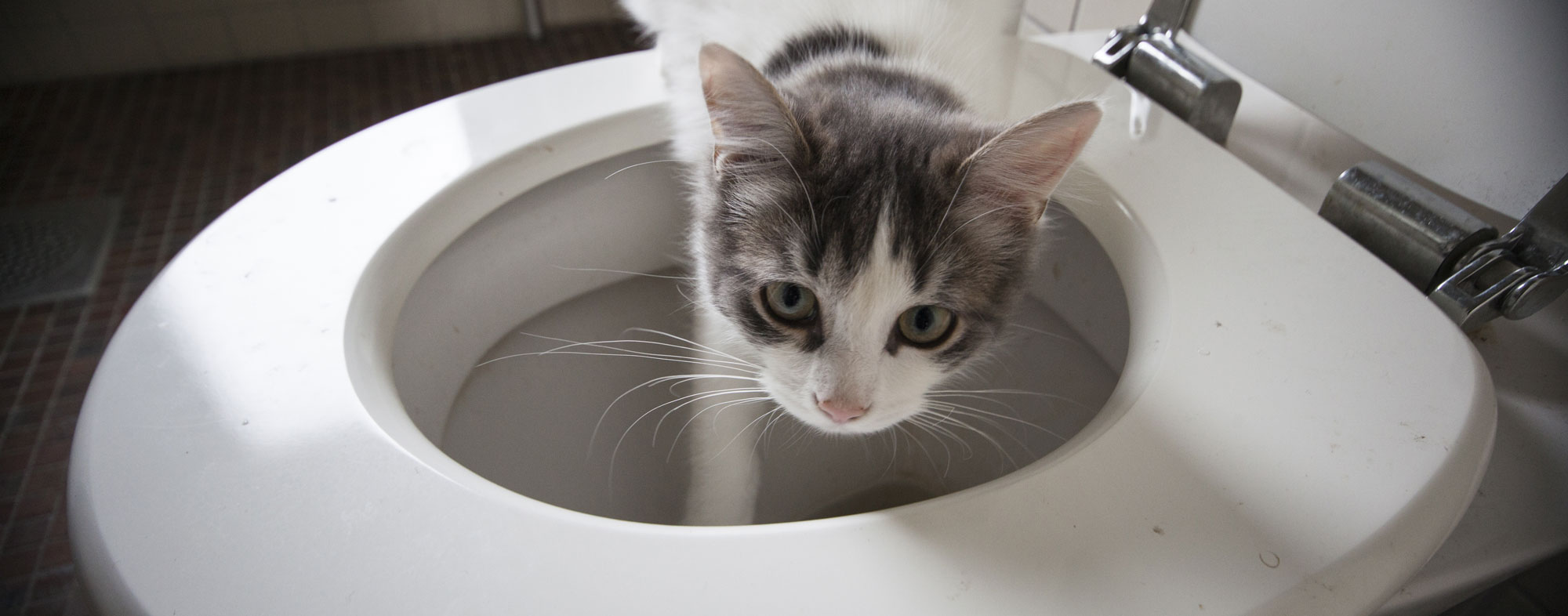Potential Issues of Flushing Cat Poop Down Your Toilet - Safeguard Your Plumbing
Potential Issues of Flushing Cat Poop Down Your Toilet - Safeguard Your Plumbing
Blog Article
Everyone may have their personal ideas on the subject of How to Dispose of Cat Poop and Litter Without Plastic Bags.

Introduction
As cat proprietors, it's vital to be mindful of how we throw away our feline close friends' waste. While it may appear practical to flush cat poop down the commode, this method can have harmful effects for both the atmosphere and human wellness.
Environmental Impact
Purging feline poop introduces hazardous pathogens and bloodsuckers into the water system, positioning a substantial threat to water ecosystems. These impurities can adversely affect marine life and concession water quality.
Wellness Risks
Along with ecological issues, flushing feline waste can also posture wellness risks to human beings. Pet cat feces might consist of Toxoplasma gondii, a bloodsucker that can cause toxoplasmosis-- a possibly serious disease, especially for pregnant females and individuals with damaged immune systems.
Alternatives to Flushing
Luckily, there are more secure and extra responsible means to take care of cat poop. Think about the adhering to choices:
1. Scoop and Dispose in Trash
The most typical method of taking care of cat poop is to scoop it into a naturally degradable bag and toss it in the garbage. Make certain to use a devoted litter scoop and take care of the waste promptly.
2. Usage Biodegradable Litter
Choose naturally degradable cat clutter made from materials such as corn or wheat. These clutters are environmentally friendly and can be safely taken care of in the garbage.
3. Hide in the Yard
If you have a yard, take into consideration burying pet cat waste in a designated location away from vegetable gardens and water sources. Make certain to dig deep sufficient to stop contamination of groundwater.
4. Mount a Pet Waste Disposal System
Invest in a pet dog garbage disposal system specifically created for cat waste. These systems utilize enzymes to break down the waste, reducing smell and environmental impact.
Verdict
Responsible pet dog ownership extends past giving food and shelter-- it additionally includes appropriate waste administration. By avoiding purging pet cat poop down the toilet and choosing alternate disposal approaches, we can lessen our ecological footprint and safeguard human health and wellness.
Why You Should Never Flush Cat Poop Down the Toilet
A rose by any other name might smell as sweet, but not all poop is created equal. Toilets, and our sewage systems, are designed for human excrement, not animal waste. It might seem like it couldn’t hurt to toss cat feces into the loo, but it’s not a good idea to flush cat poop in the toilet.
First and foremost, assuming your cat uses a litter box, any waste is going to have litter on it. And even the smallest amount of litter can wreak havoc on plumbing.
Over time, small amounts build up, filling up your septic system. Most litter sold today is clumping; it is made from a type of clay that hardens when it gets wet. Ever tried to scrape old clumps from the bottom of a litter box? You know just how cement-hard it can get!
Now imagine just a small clump of that stuck in your pipes. A simple de-clogger like Drano isn’t going to cut it. And that means it’s going to cost you big time to fix it.
Parasitic Contamination
Believe it or not, your healthy kitty may be harboring a nasty parasite. Only cats excrete Toxoplasma in their feces. Yet it rarely causes serious health issues in the cats that are infected. Most people will be fine too if infected. Only pregnant women and people with compromised immune systems are at risk. (If you’ve ever heard how women who are expecting are excused from litter cleaning duty, Toxoplasma is why.)
But other animals may have a problem if infected with the parasite. And human water treatment systems aren’t designed to handle it. As a result, the systems don’t remove the parasite before discharging wastewater into local waterways. Fish, shellfish, and other marine life — otters in particular — are susceptible to toxoplasma. If exposed, most will end up with brain damage and many will die.
Depending on the species of fish, they may end up on someone’s fish hook and, ultimately on someone’s dinner plate. If that someone has a chronic illness, they’re at risk.
Skip the Toilet Training
We know there are folks out there who like to toilet train their cats. And we give them props, it takes a lot of work. But thanks to the toxoplasma, it’s not a good idea.

We were made aware of that report about How to Dispose of Cat Poop and Litter Without Plastic Bags through a friend on our other domain. Liked our blog posting? Please share it. Let other people locate it. Thank you so much for your time spent reading it.
Call Today Report this page